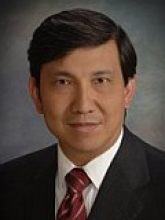MAE Seminar: Meshfree Method after 20 Years and its New Application to Data-Driven Computational Mechanics

Department of Structural Engineering
University of California, San Diego
Abstract: In the past two decades, meshfree methods have emerged into a new class of computational methods with considerable success. For instance, the need for high-order quadrature and background grid has been circumvented, making it possible to eliminate the need for a mesh entirely. Meshfree collocation methods have undergone significant development, which also offer a truly meshfree solution. Meshfree methods such as the Reproducing Kernel Particle Method (RKPM) offer arbitrary orders of continuities/discontinuities and locality in approximation while allowing straightforward model refinement and physics-specific solution enrichment. These unique properties have expanded the horizon of computational mechanics and scientific computing applications well beyond what the mesh-based computational methods can offer such as modeling of man-made and natural disasters. A recent effort finds its new application in pixel-based data-driven computing, where the employment of smooth interpolants in an unstructured discretization can be utilized to reconstruct the local data manifold in a convex hull based on nearest neighbor material points to yield a better conditioned reduced-dimension data-driven optimization system for enhanced accuracy and robustness against noise and outliers in data sets. A data-driven simulation of various nonlinear materials under finite deformation will be demonstrated.
Bio: J.S. Chen is currently the inaugural William Prager Chair Professor of Structural Engineering, professor of mechanical and aerospace engineering, and director of the Center for Extreme Events Research at UC San Diego. Before joining UCSD in October 2013, he was a UCLA Chancellor’s Professor of civil and environmental engineering, where he served as the department chair from 2007-2012. Chen’s research is in computational mechanics and multiscale materials modeling with specialization in the development of meshfree methods. He is a past president of the U.S. Association for Computational Mechanics (USACM) and past president of ASCE Engineering Mechanics Institute (EMI). He has received numerous awards, including the Computational Mechanics Award from the International Association for Computational Mechanics (IACM), Grand Prize from Japan Society for Computational Engineering and Science (JSCES), the Ted Belytschko Applied Mechanics Award from ASME Applied Mechanics Division, the Belytschko Medal from U.S. Association for Computational Mechanics (USACM), among others. He is a fellow of USACM, IACM, ASME, EMI, SES, ICACM and ICCEES.
Share
Upcoming Events
-
MSE 298 Seminar: Mechano-Electrochemical Phenomena at Ceramic Electrolyte Interfaces
-
MSE 298 Seminar: Innovation In Materials Science - An Industrial R&D Perspective
-
MSE 298 Seminar: Understanding the Impact of Grain Boundary Inclination on Grain Growth Using Modeling and Simulation and Experiments
-
EECS Seminar: Mixed Conductors for Bioelectronics
-
MSE 298 Seminar: Ionic Correlations in Polymer Nanostructures - From Block Copolymers to End-Charged Blends
